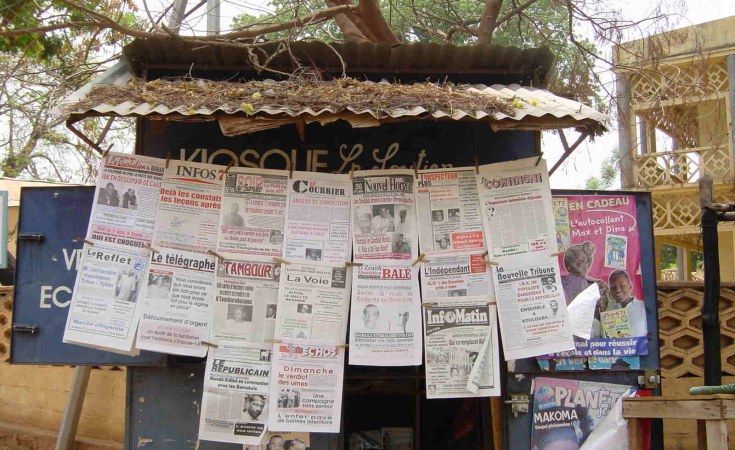Mali's forthcoming election risks being marred by such technical shortcomings, and with such a low rate of participation, that a new president could be deprived of the legitimacy necessary to lead a confused and weakened country back onto the road to stability and development.
The first round of the presidential election is scheduled for July 28. A short delay would be the most sensible way forward but with the window closing, the prospect of a postponement seems less and less likely.
The Constitutional Council has validated 28 candidacies and electoral campaigning began on July 7. The minister for territorial administration is convinced that “all the conditions for the unfolding of transparent and credible elections” have been met. He has also noted that his department is in sole charge of the election, a clear message to the national electoral commission (Commission électorale nationale indépendante, or CENI), which in recent days has frequently alluded to “imperfections” in technical preparations for the vote.
If this unfortunate situation continues to prevail, then it will be necessary to prepare security, political and logistical measures at least to limit the severity of an eventual post-electoral crisis.
Given the hundreds who have died in post-election violence in Cote d'Ivoire and elsewhere in recent years, many believe an African election can be counted a success if it manages to take place without bloody conflict. It's true that the risks in Mali do not seem as high as elsewhere, and that is a good thing. And the determination to keep the election date of July 28 was, until the last few weeks, plausibly justified: it helped pile on the pressure necessary to achieve a preliminary peace accord between the transitional government and armed Touareg groups in the north, and it motivated transition authorities to accelerate their electoral preparations.
But today the reasons against a July 28 date outweigh those in favour.Even if many voters cannot receive their national identification cards in time, and even if the administration is not yet present throughout the north of the country it is supposedly necessary to vote then. Reasons for this which have been cited include: the Malian government has settled on that date because the transitional government really ought to end; a questionably-elected president would still be better than an interim head of state; a delay of a few weeks would not significantly improve the quality of the electoral process; Mali's partners want elections before they can provide the generous aid they have promised; and France's president has indicated that he won't tolerate any change in the date.
Behind these arguments, some more implicit than others, lies a scepticism about the utility of an electoral process, which appears to be seen as a box to be ticked before the political class and international partners can get down to serious business. It's as though everyone has become convinced that this presidential vote, whether well done, popular, imperfect, very imperfect or disastrous, won't really make a big difference to the future of Mali.
This belief is not altogether wrong. Even a credible and technically successful election would not suffice to establish Mali's democracy on a firm foundation, introduce ethics into the practice of public affairs, reconstruct the Malian security services or reconcile the Malian people to each other. But to therefore resign oneself to having an election that could mobilise well under the 36 percent of the eligible voters who participated in the last presidential vote in 2007 is a peculiar way to encourage democracy in Mali.
If Malians do indeed vote three weeks from now, everything should be done to prevent an imperfect election from turning into a catastrophic one.
- The Malian authorities, the United Nations Mission for Stabilisation in Mali (MINUSMA, which has been operational only since July 1) and the French forces of Operation Serval must prepare themselves for the possibility of terrorist attacks during the electoral campaign and on voting day.
- The remaining three weeks should be used to distribute the maximum possible number of identification cards, inform voters of the exact location of polling stations in order to limit disorder on the day of the vote, and demonstrate convincingly to both voters and candidates that the post-electoral process will be transparent, from the central collecting of ballots to the announcement of preliminary results.
- The Economic Community of West African States, the African Union and the United Nations must work together with Malian authorities towards securing every aspect of the electoral process.
Finally, all the presidential candidates need to sign on not just to a code of conduct - as they have already done - but to a solemn agreement to respect the results of the election, or to contest them exclusively by legal means and to accept any verdict of the Constitutional Court. They should confirm publicly their acceptance of the anticipated shortcomings of the electoral process and prepare themselves to live with the results of an election that will, after all, result in 26 or 27 of them losing.
Louise Arbour is president of, and Gilles Yabi the West Africa project director at, the International Crisis Group.


